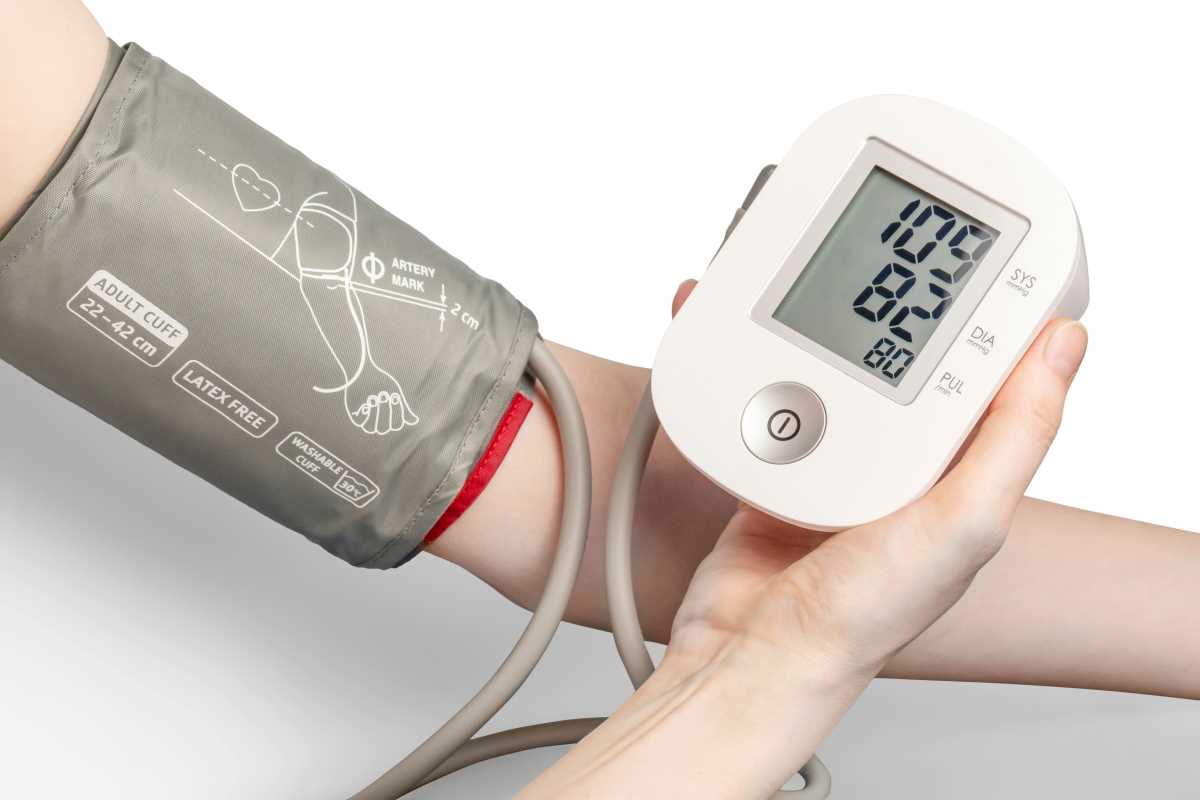If you're managing high cholesterol, you've likely had the standard lipid panel done during your annual physical. This basic blood test measures total cholesterol, LDL ("bad" cholesterol), HDL ("good" cholesterol), and triglycerides. While these measurements provide valuable baseline information, they only tell part of your cardiovascular risk story.
Advanced lipid testing offers a more comprehensive picture of your heart health by examining not just how much cholesterol you have, but the size, density, and behavior of the particles carrying it through your bloodstream. For adults in their 40s, 50s, and beyond, this detailed analysis can be the key to preventing heart attacks and strokes through more precise, personalized treatment strategies.
Understanding advanced lipid testing empowers you to have more informed conversations with your healthcare provider and take a more active role in protecting your cardiovascular health as you navigate this important life stage.
Understanding the Limitations of Standard Cholesterol Tests
The traditional lipid panel has served as the foundation of cardiovascular risk assessment for decades. However, medical research has revealed significant gaps in what these basic measurements can tell us about your actual risk of developing heart disease.
Why Standard Tests Fall Short
Standard cholesterol tests measure the total amount of cholesterol in different categories but don't examine the characteristics of the particles carrying that cholesterol. Think of it like measuring the weight of all the cars on a highway without considering whether they're compact cars or large trucks. The weight tells you something, but the size and type of vehicles provide crucial additional information about traffic flow and potential problems.
Two people can have identical LDL cholesterol numbers yet face dramatically different cardiovascular risks based on their particle characteristics. One person might have fewer, larger LDL particles that are less likely to penetrate arterial walls, while another has many small, dense particles that easily slip into arteries and cause damage.
This limitation explains why some people with "normal" cholesterol levels still experience heart attacks, while others with elevated numbers never develop cardiovascular problems. Standard tests simply don't capture the complete picture of what's happening at the cellular level.
What Advanced Lipid Testing Reveals
Advanced lipid testing employs sophisticated laboratory techniques to analyze your blood at a much deeper level. These tests examine particle characteristics that directly influence your cardiovascular risk, providing actionable insights that standard panels miss.
Lipoprotein Particle Analysis
The most significant advancement in lipid testing involves measuring lipoprotein particles themselves rather than just their cholesterol content. Advanced tests count the actual number of LDL particles (LDL-P) and determine their size distribution.
Why Particle Count Matters More Than Cholesterol Content
Research consistently shows that LDL particle count provides superior cardiovascular risk prediction compared to LDL cholesterol levels. A high particle count indicates more opportunities for arterial wall penetration, regardless of the cholesterol content per particle.
Small, dense LDL particles pose particular concern because they:
- Easily penetrate arterial walls
- Remain in circulation longer
- Are more susceptible to oxidation
- Trigger inflammatory responses
Large, fluffy LDL particles, while still containing cholesterol, are less likely to cause arterial damage due to their size and shorter circulation time.
ApoB Measurement: The Gold Standard
Apolipoprotein B (apoB) serves as a protein marker found on every atherogenic (artery-damaging) particle. Since each harmful particle contains exactly one apoB molecule, measuring apoB provides an accurate count of total atherogenic particles.
Benefits of ApoB Testing:
- More accurate risk assessment than LDL cholesterol
- Better prediction of cardiovascular events
- Improved monitoring of treatment effectiveness
- Clearer treatment targets
Recent studies involving over 200,000 participants demonstrate that apoB testing identifies cardiovascular risk more accurately than traditional cholesterol measurements, particularly in people whose standard tests appear normal.
Lipoprotein(a): The Hidden Risk Factor
Lipoprotein(a), or Lp(a), represents one of the most important discoveries in cardiovascular risk assessment. This genetic variant of LDL cholesterol significantly increases heart disease risk but goes undetected in standard testing.
Key Facts About Lp(a):
- Present in about 20% of the population
- Levels determined primarily by genetics
- Cannot be significantly lowered through diet or exercise
- Requires specific medical treatments when elevated
- Increases risk for heart disease and stroke
Testing for Lp(a) is particularly important if you have a family history of early heart disease, as elevated levels often run in families and can explain seemingly unexplained cardiovascular events in otherwise healthy individuals.
Additional Advanced Markers
Modern lipid testing can measure numerous other markers that provide insights into cardiovascular risk:
HDL Particle Analysis: Not all HDL cholesterol provides equal protection. Large HDL particles offer better cardiovascular protection than small ones, and advanced testing can distinguish between these types.
Triglyceride-Rich Remnants: These particles, left over after triglyceride metabolism, contribute to arterial damage but aren't measured in standard panels.
Inflammatory Markers: Some advanced panels include markers like high-sensitivity C-reactive protein (hs-CRP) that indicate arterial inflammation.
Benefits of Advanced Lipid Testing
Understanding your detailed lipid profile offers several advantages over relying solely on standard cholesterol measurements.
More Accurate Risk Assessment
Advanced testing provides a clearer picture of your actual cardiovascular risk. This precision becomes particularly valuable if your standard cholesterol numbers don't clearly indicate your risk level or if you have other risk factors that complicate interpretation.
For example, if you have normal LDL cholesterol but high LDL particle count, you might benefit from more aggressive treatment than your basic numbers suggest. Conversely, elevated LDL cholesterol with large particle size might indicate lower actual risk than traditional calculations suggest.
Personalized Treatment Planning
Detailed lipid analysis enables your healthcare provider to develop more targeted treatment strategies. Different lipid abnormalities respond better to specific interventions:
- High particle count might benefit from statins or PCSK9 inhibitors
- Small, dense LDL particles may respond well to dietary changes or niacin
- Elevated Lp(a) requires specialized medications currently in development
- Low HDL with poor particle quality might benefit from specific lifestyle interventions
Better Monitoring of Treatment Effectiveness
Advanced testing helps determine whether your current treatment is actually reducing cardiovascular risk or just improving surface numbers. You might see LDL cholesterol improvement while particle count remains elevated, indicating the need for treatment adjustments.
Early Detection of Problems
Some people have normal cholesterol levels but concerning particle characteristics that indicate future problems. Early detection through advanced testing allows for preventive interventions before cardiovascular disease develops.
Who Should Consider Advanced Lipid Testing?
While not everyone needs advanced lipid testing, certain situations make these comprehensive analyses particularly valuable.
Strong Family History of Heart Disease
If close relatives experienced heart attacks, strokes, or required cardiac procedures at young ages (men under 55, women under 65), advanced testing can identify genetic risk factors like elevated Lp(a) that standard tests miss.
Discordant Risk Factors
Sometimes your calculated cardiovascular risk doesn't match your cholesterol numbers. Advanced testing can resolve these discrepancies by revealing hidden risk factors or protective elements.
Treatment Resistance
If your cholesterol levels don't respond adequately to lifestyle changes or medications, advanced testing can identify specific problems that require targeted interventions.
Metabolic Conditions
People with diabetes, metabolic syndrome, or insulin resistance often have complex lipid abnormalities better characterized through advanced testing.
Personal Health Optimization
If you're committed to optimizing your cardiovascular health and want the most complete picture possible, advanced testing provides valuable insights for fine-tuning your prevention strategies.
Discussing Advanced Testing with Your Healthcare Provider
Approaching conversations about advanced lipid testing requires preparation and clear communication about your health goals and concerns.
Come Prepared with Information
Research your family history of cardiovascular disease and bring specific questions about your risk factors. Understanding your current cholesterol numbers and any treatment challenges helps focus the discussion.
Explain Your Motivations
Share why you're interested in advanced testing. Whether it's family history concerns, treatment optimization, or comprehensive risk assessment, clear motivations help your provider understand your needs.
Discuss Cost and Insurance Coverage
Advanced lipid tests often cost more than standard panels, and insurance coverage varies. Ask about:
- Test costs and payment options
- Insurance coverage requirements
- Alternative testing facilities or programs
- Whether results will change treatment recommendations
Ask About Interpretation and Follow-up
Understand how results will be interpreted and what actions might follow. Advanced testing is only valuable if results lead to appropriate interventions.
Making Advanced Testing Work for You
If you decide to pursue advanced lipid testing, maximize its value through proper preparation and follow-through.
Optimize Testing Conditions
Fast for 9-12 hours before testing, avoid alcohol for 24 hours, and maintain your usual diet for several days prior. Avoid starting new medications or supplements that might affect results.
Keep Detailed Records
Maintain records of all your lipid test results over time. Tracking trends provides more valuable information than individual test results.
Follow Through on Recommendations
Advanced testing is only worthwhile if you're prepared to act on the results. This might involve medication adjustments, lifestyle changes, or additional monitoring.
Regular Re-evaluation
Work with your healthcare provider to determine appropriate retesting intervals. Some markers change slowly, while others may require more frequent monitoring during treatment adjustments.
Disclaimer: The content provided on SuperHealthyTips is for informational and educational purposes only. This information is not intended to be a substitute for professional medical advice, diagnosis, or treatment.
 (Image via
(Image via





